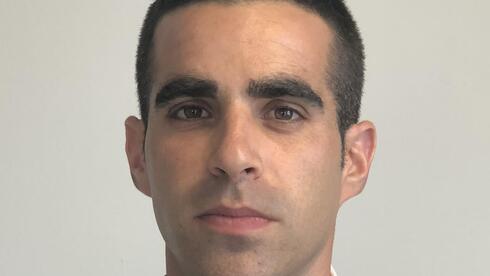“It might be the year of ‘back to fundamentals.’ After many years in 2022 suddenly capital has a cost and general investors have alternatives in other asset classes,” said Dr. Nadav Shimoni, Managing Director of Arkin Digital Health. “The conversation rightfully goes back to solid business elements like a path to sustainability and the ability to scale versus a focus on top-line revenues only.”
Shimoni told CTech he believes that those who focused exclusively on revenue growth this year and who didn’t pay enough attention to the cost of generating these revenues are the biggest “losers” of the year, whereas winners remain value and thesis-driven entrepreneurs and investors.
1 View gallery


Nadav Shimoni Arkin
(Photo: Self-Taken)
Arkin Holdings took part on CTech’s “2022 VC Survey” series to share some insights and predictions on the year ahead.
Name of fund/funds: Arkin Holdings, à Arkin Bio, Arkin Digital Health, Accelmed, Sphera
Total sum of fund: $2 billion
Partners: For Arkin Digital Health, Dr. Nadav Shimoni
Notable/select portfolio companies: Eleos, Laguna, Rhino, Medminder, Validic, Nest
If 2020 was the year of the pandemic, and 2021 was the year of records, how would you define 2022 in the VC sector?
It might be the year of “back to fundamentals.” After many years in 2022 suddenly capital has a cost (i.e. due to increased interest rates) and general investors (i.e. LPs, public market) have alternatives in other asset classes. The conversation rightfully goes back to solid business elements like a path to sustainability and the ability to scale versus a focus on top-line revenues only.
Who are the big winners of 2022 and why?
Value and thesis-driven entrepreneurs and investors, per this notion of fundamentals, matter much more.
Who are the big losers of 2022 and why?
Those who focused exclusively on the top line (revenue growth) and who didn’t pay enough attention to the cost of generating these revenues and how sustainable this growth is.
What do you expect in the VC sector in 2023?
I’m actually afraid we just starting to see the change, and we are not at the bottom yet. There is a lot of noise that still has to exit the system and currently many companies that raised substantial amounts in 2021 still have enough runway to avoid fundraising (or raising only in reasonable terms). In 2023, we will see more companies that must raise, and as a by-product, an aggressive valuation reset and unfavorable terms.
What global processes will affect (positively and negatively) the Israeli market?
I would say mostly repercussions of larger markets (U.S, EU) being more price sensitive (per inflation and recession) and fewer buyers on the market, in other words in some sectors the sales cycle might be longer and with lower account size (i.e. worse LTV / CAC ration on both sides of the equation).
How should different companies prepare for the coming year?
As we are healthcare-focused investors, we will answer per this particular sector. I think there have been (and will continue to be) significant changes among specific categories of customers (hospitals, payors, retailers entering healthcare, tech giants in healthcare), and companies should be very diligent in validating their go-to-market and make proper amendments if their previous hypothesis or even successes no longer hold.
We actually hosted an hour-long webinar on that topic so just as an example, U.S hospitals are having one of the worst-performing periods in a very long time. They will bleed ~$50-100 billion in 2022 alone. Improving their margins is THE 1,2 and 3 focus and everything else is cast aside. Therefore, any solution that cannot objectively demonstrate revenue generating aspect (or prominent expenditures reductions) in 12 months or less would be a super challenging sale. However, if it answers that criteria, the sale cycle might even be accelerated.
What will be of the dozens of unicorns born last year?
I think what matters most is how the story ends and less a specific valuation at a certain point. This is a theoretical ROI (unless of course secondary sale in the interim). I hope some of these companies will be able to make it to the finish line (sustainable public company / successful M&A).
What sectors will experience an acceleration in VC investment and which will suffer a slowdown – and why?
Since we are healthcare-focused, we are less positioned to answer.
HR: Do the layoffs, those that have already happened and those that are coming, help to fix in any way the distress experienced by companies over the past 2-3 years?
I think the 2021 hiring environment is simply non-sustainable and in part is a driver to the correction we are seeing.
Nest Genomics – Arkin Holdings’ notable portfolio company
Nest Genomics
Digital health; Making clinical genomics accessible and actionable for non-geneticist physicians and their patients .
Founders: Moran Shoat and Guy Snir who previously founded Clear Genetics in the same domain. Clear Genomics developed software to increase access to genetic counseling, was sold to Invitae (NVTA) for 20x and became the backbone of Invitae’s SaaS platform.
Founding year: 2022
Number of employees: 8
Explanation behind investment: A world where every patient has access to their genetic information and physician can use that in every medical decision is inevitable. Yet that world is still far away despite hearing about genomics for years now and one of the key reasons is that simply many physicians don’t have the training and/or means to act upon genomic information. Nest is ultimately solving this problem by building a solution that automatically creates personalized care plans for patients based on their genetics and integrates them with their standard care.
Credit: Source link


Comments are closed.